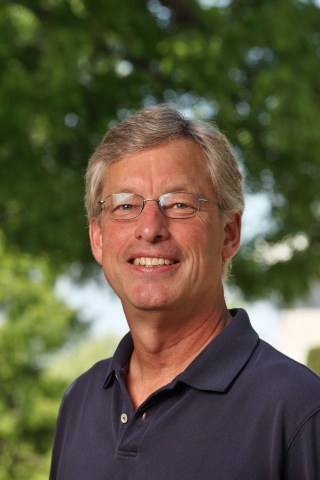On Sept. 18, Word On The Street book and magazine festival will roll through the city of Saskatoon for the sixth time annually, creating an exciting hub of ideas and information.

John Boyko will be appearing at Word on the Street in promotion of his book.
A book lover’s’ dream, Word On The Street offers a chance to listen to and chat with many Canadian authors such as John Boyko. Boyko spent time at the University of Saskatchewan doing research for his most recent book Cold Fire: Kennedy’s Northern Front, which he will be promoting at the festival.
In his book, Boyko looks at a slice of Canadian history and tries to explain how the relationship between former prime minister John Diefenbaker and American president John F. Kennedy may have a lasting impact on Canadian culture and diplomacy today.
“[Cold Fire] encourages you to look at the pressure Canada is under now and see that we need to be nimble and we need to be adept with respect to our relationship with the United States,” Boyko said.
Boyko believes that Canadian nationalism is key to future strength and success, and he hopes his book will make that perfectly clear.
“We are neighbors to a behemoth that is to our south, and no matter how friendly or benevolent the beast, we have to always be looking to protect our sovereignty and our unique culture,” Boyko said.
Boyko spent a week at the U of S, utilizing the archives and visiting the Diefenbaker Canada Centre on campus to inform his book. He was always the first to arrive in the morning and the last to leave at night.
At the Diefenbaker Canada Centre, Boyko toured the collections and gained a unique insight into the going-ons in Parliament during the 1960s.
“It was very good to see the replica of Diefenbaker’s office, because I was then able to explain the office with first-hand knowledge when talking about Kennedy’s visit,” Boyko said.
A self-proclaimed “history geek,” Boyko says that there can be a lot to learn from history but warns that people should be wary of what content they consume.
“The only reason that history matters, I think, is if your reading of history is going to help you understand today — if it doesn’t, then sure, it’ll make you the king of the bar on trivia night, but it’s useless,” Boyko said.
Looking forward to the upcoming festival, Boyko welcomes the opportunity to talk with readers and other authors alike and to learn what people want to see more or less of in his future projects.
“I truly enjoy being around people who enjoy the give and take of ideas and enjoy books,” Boyko said.
If for nothing else, he says that the Word On The Street festival is a chance for writers to be social.
“Ninety-nine per cent of what writers do is solitary so it’s great to be with others; you can hear what they’re interested in and share your own ideas. You get to dust yourself off and actually enter the light,” Boyko said.
He believes Word On The Street is also a great opportunity for students to take advantage of and encourages them to get out and use their voice.
“Students should avail themselves this opportunity to interact with and share ideas with all of these authors — if you don’t agree with these ideas, that’s great, challenge them and ask questions,” Boyko said.
After all, Boyko says, Word On The Street has some of the same core elements as your university classes.
“I think university is less about learning all the right answers, but rather how to ask the right questions, and that’s what literary festivals are all about too,” Boyko said.
—
Emily Migchels
Photo: John Boyko / Supplied
Leave a Reply